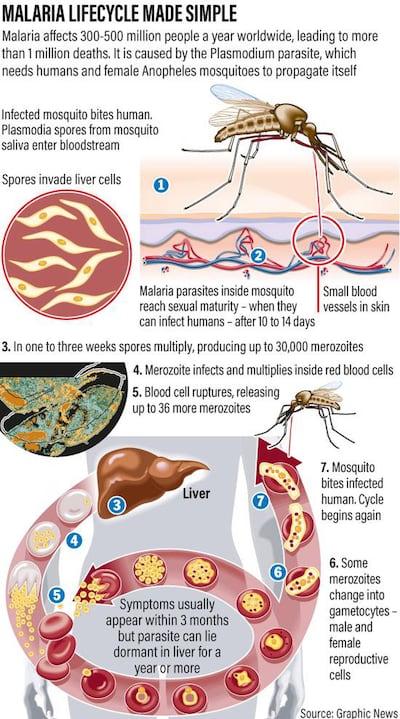The World Health Organisation (WHO) has certified Egypt as malaria-free, marking a significant public health milestone for the country.
The achievement is the culmination of a nearly 100-year effort by the Egyptian government and people to eradicate the disease, which has been present in the country since ancient times, the WHO said.
Malaria, a mosquito-borne infectious disease, has been a major public health challenge in Egypt for millennia.
The disease was first recorded in the country about 4000 BC, with genetic evidence of the disease found in the mummies of ancient Egyptian pharaohs, including Tutankhamun, the WHO said.

“Malaria is as old as Egyptian civilisation itself, but the disease that plagued pharaohs now belongs to its history and not its future,” Dr Tedros Adhanom Ghebreyesus, WHO director general, said in a video message congratulating Egypt on the milestone.
Egypt has now joined the ranks of 44 countries and one territory that have achieved malaria-free status. It joins the UAE and Morocco from the Arab world.
The journey to elimination was not without its challenges. In the 1920s, Egypt began to reduce human-mosquito contact by prohibiting the cultivation of rice and other crops near homes. The country designated malaria as a notifiable disease in 1930 and established its first malaria control station focused on diagnosis, treatment and surveillance.
Despite these efforts, malaria cases increased to more than three million in 1942 due to population displacement during the Second World War and the disruption of medical supplies and services. However, Egypt succeeded in controlling the outbreak by establishing 16 treatment divisions and recruiting more than 4,000 health workers.
The construction of the Aswan Dam in 1969 created a new malaria risk, but the country launched a rigorous vector control and public health surveillance project to rapidly detect and respond to malaria outbreaks. By 2001, malaria was firmly under control, and the Ministry of Health and Population set its sights on preventing the re-establishment of local malaria transmission.
Today, Egypt's strong cross-border partnership with neighbouring countries, including Sudan, has been instrumental in preventing the re-establishment of local malaria transmission, the WHO said.
Malaria diagnosis and treatment are provided free of charge to anyone living in the country, regardless of legal status, and health professionals are trained to screen for malaria cases, including at borders.


